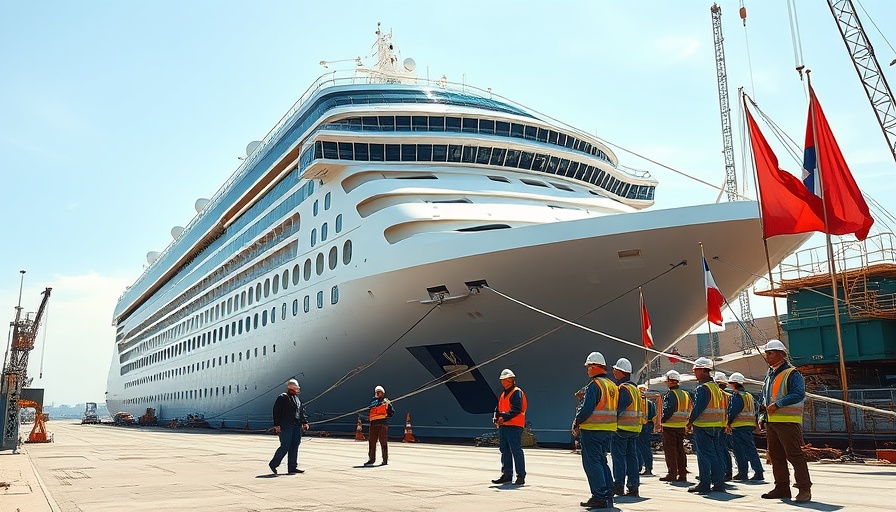
Stream Marine Technical: Leading the Charge in Alternative Fuel Training
As the maritime industry braces for a transition into a future dominated by alternative fuels, Stream Marine Technical (SMT) in Paisley, Scotland, has taken a significant step forward by adding a new Kongsberg K-Sim Engine simulator to its training suite. This addition bolsters SMT's commitment to enhancing the competence of seafarers and marine engineers as they prepare to operate Liquefied Natural Gas (LNG)-fueled and other advanced vessels.
The Importance of K-Sim Engine Technology
The K-Sim Engine platform, developed by Kongsberg Maritime, is not just any simulator; it is renowned for its high realism, adaptability, and compliance with international training standards such as DNV certification and IMO STCW requirements. With this technology, SMT can conduct training that addresses crucial areas like fuel economy, emission reduction, and emergency response. Martin White, CEO of SMT, emphasizes the need for high-quality training, stating, "As the industry transitions towards cleaner fuels, high-quality training is essential to ensure seafarers are not only compliant but confident in managing these technologies." This assurance is pivotal as the demand for LNG and other alternative fuels continues to rise, making well-trained personnel indispensable.
Addressing Skills Gaps in the Maritime Sector
The new simulator plays a critical role in addressing the skills gap inherent in the growing reliance on low- and zero-carbon fuels. The maritime workforce faces new challenges and technologies, necessitating advanced training to ensure safety and efficiency. SMT’s investment in the K-Sim Engine marks a proactive approach to these challenges, as they strive to prepare seafarers for the operational realities of the next generation of vessels.
Espen Liset, Executive Vice President of Digital and Simulation at Kongsberg Maritime, supports this sentiment, asserting that the collaborative efforts with SMT aim to ensure the maritime workforce is fully equipped to operate next-generation, low-emission vessels safely and efficiently. By utilizing scenario-based exercises tailored to emerging technologies, SMT is well-positioned to lead the charge in the maritime training sector.
The Broader Context: The Global Movement Towards Sustainable Shipping
SMT's initiative is part of a broader global trend towards sustainability in the shipping industry, where various stakeholders—including shipbuilders, operators, and training institutions—are working together to promote cleaner technologies. As countries around the world tighten regulations on emissions and environmental impact, the urgency for effective training programs increases.
Future Trends in Maritime Training
As the maritime sector continues to navigate through technological advancements and regulatory changes, the need for comprehensive training programs that encompass new fuel types and technologies will inevitably grow. The integration of sophisticated simulators like the K-Sim Engine is a promising trend for maritime education, fostering a workforce that is adept and capable of tackling future challenges.
Conclusion: A Call for Continuous Learning and Adaptation
The addition of the K-Sim Engine simulator not only enhances SMT's curriculum but illustrates a vital shift in how maritime professionals are trained. In a rapidly evolving industry, the emphasis on continuous learning, adaptation, and the responsible management of new fuel technologies is paramount. As such, organizations in the maritime sector must remain vigilant and proactive in addressing the educational needs of their workforce.
 Add Row
Add Row  Add
Add 




Write A Comment